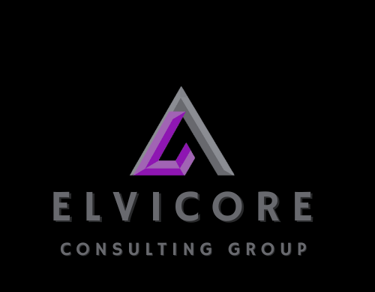Maximizing Leadership Potential: The Power of Leadership Coaching
Dr. Bruce Huntley
6/26/20243 min read


In today's dynamic business environment, effective leadership is more critical than ever. According to Hickman and Akdere (2018), strong leadership is essential for organizational sustainability. The process of leadership development has evolved to become more individualized, considering the unique needs and contexts of each leader. Both formal and informal leaders play a pivotal role in driving the organization forward through innovation, demonstrations of agility, and forging high employee engagement. However, the complexities of globalization, multi-generational workforces, and social responsibility, among other demands, make it imperative to adopt advanced leadership development strategies. One such strategy is leadership coaching.
Here are some useful tips for leveraging leadership coaching as a powerful development tool for leaders at all levels:
1. Align Coaching with Business Strategy
Leadership development should be integrated into the overall business strategy. Coaching that has the greatest impact happens in context, i.e., individual development and personal behavioral change against the green screen of the individual’s team and organizational business strategy. This alignment ensures that all three levels of the leadership initiatives are relevant and have a meaningful impact on the organization’s goals. As van der Westhuizen and Hewitt (2021) suggest, aligning leadership development with business strategy helps in achieving organizational sustainability and growth.
2. Craft Personalized Development Plans
Individualized development plans are crucial for effective leadership coaching. These plans should set specific goals, incorporate continuous feedback, and adapt over time to meet evolving needs. Personalized plans help maintain momentum and address areas needing improvement, ensuring that each leader’s development journey is relevant and effective (Hickman & Akdere, 2018).
3. Incorporate a Mix of Practices
A comprehensive leadership development program should include a mix of informal and formal practices. These can range from stretch assignments and role rotation to shadowing and mentoring. This diverse approach ensures leaders gain a well-rounded experience and develop a wide range of skills (Megheirkouni & Mejheirkouni, 2020). The coach then can then act as a feedback partner, which is the focus of the fourth dot point.
4. Establish Robust Feedback Mechanisms
Feedback is a cornerstone of effective leadership development. Organizations should establish rigorous feedback loops to continuously gather and act on feedback. This helps identify growth areas and training needs, fostering an environment of continuous improvement and ensuring leaders are always progressing (Hickman & Akdere, 2018).
5. Embrace Cultural Sensitivity
Leadership styles are influenced by cultural contexts. Understanding and embracing these differences is crucial for effective leadership. For instance, Eastern and Afrocentric perspectives often prioritize community and collective well-being over individual success. Incorporating such diverse viewpoints can create a more inclusive and effective leadership approach (McNulty, 2017; van der Westhuizen & Hewitt, 2021).
6. Utilize Strategic Development Tools
Tools like development plans and learning agendas are invaluable in leadership coaching. Development plans serve as a guide, helping leaders set and achieve their goals. Learning agendas promote self-discovery and personal growth, helping leaders build a stimulating and achievable path for development (Taylor et al., 2019).
By adopting these strategies, organizations can develop leaders who are not only innovative and agile but also deeply committed and engaged. Effective leadership coaching enhances individual capabilities and drives organizational success. As we navigate the complexities of today's business world, investing in leadership development through coaching is not just beneficial but essential. If you are looking to emphasize these elements in your leadership coaching programs and cultivate a culture of continuous development and effective leadership, individually and within your organization, I invite you to join me on a Discovery Call. Learn how to gain or regain your impact on the Three-Layered Purpose of Leadership – thus unleashing the authentic leader you or those in your organization want to be.
Also, there are only (4) FOUR spots left for my next Mental Fitness Leadership Community starting in July. This is where you can join others in accelerating your leadership development and mental fitness, thus cultivating better relationships, and improving self-awareness, as well as performance management skills and success. Send me a direct message here or follow the link here Coach Bruce to get started.
References
Hickman, L., & Akdere, M. (2018). Effective leadership development in information technology: building transformational and emergent leaders. Industrial and Commercial Training., 50(1), 1–9.
McNulty, E.J. (2017). Leadership development’s epic fail. MIT Sloan Management Review., 58(4).
Megheirkouni, M., & Mejheirkouni, A. (2020). Leadership development trends and challenges in the twenty-first century: Rethinking the priorities. The Journal of Management Development., 39(1), 97–124.
Taylor, S. N., Passarelli, A. M., & Van Oosten, E. B. (2019). Leadership coach effectiveness as fostering self-determined, sustained change. The Leadership Quarterly, 30(6), 101313.
van der Westhuizen, H. C., & Hewitt, L. M. (2021). Leadership development process maturity: An Afrocentric versus Eurocentric perspective. SA Journal of Human Resource Management, 19, 10.



